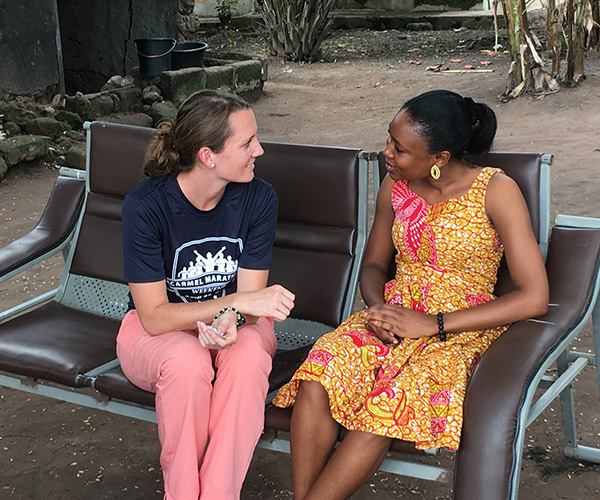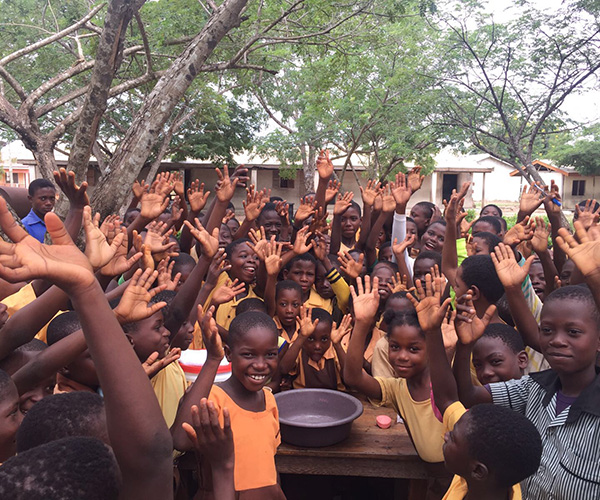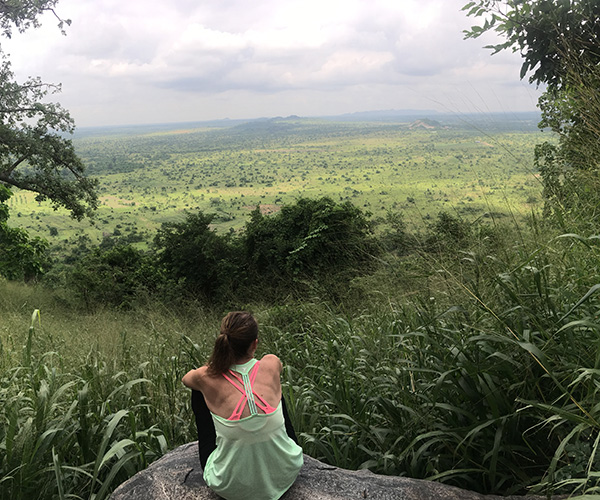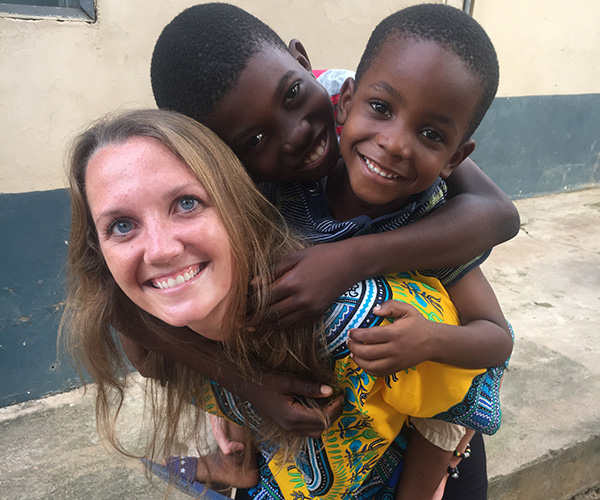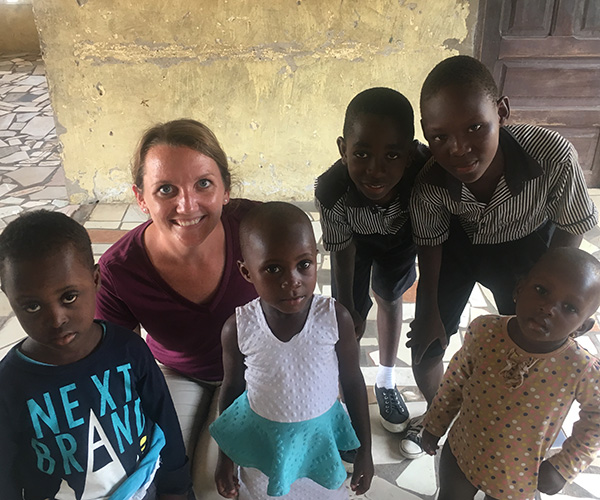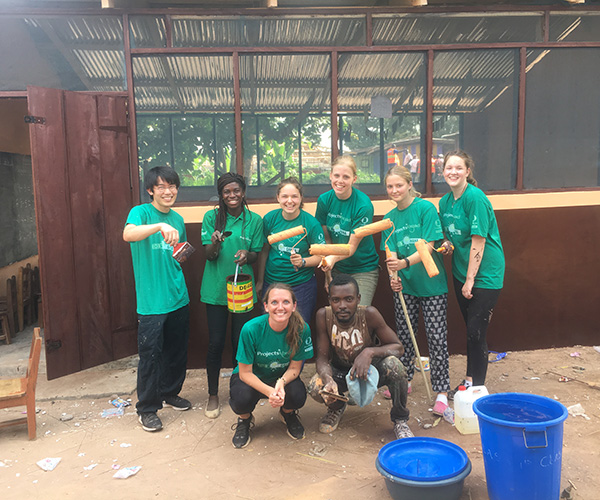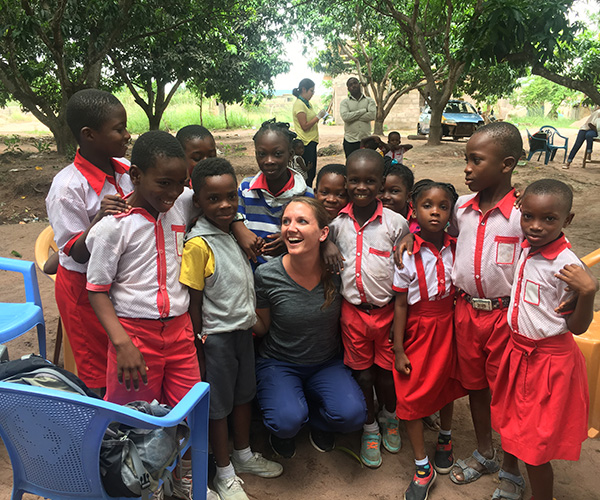UIndy MPH grad making a difference in population health

When Payton Revolt graduated from the University of Indianapolis in 2013 with a degree in psychology, she knew she wanted to move into a career that would allow her to help people. But she also realized that she wanted to make an impact on whole populations, not just one person at a time. Enter the UIndy Master of Public Health (MPH) program, which Revolt began in 2015.
Fast forward two years when Revolt graduated from UIndy a second time with her MPH. She now has a job as a vaccine-preventable disease public health investigator at the Indiana State Department of Health.
“I loved my time as an MPH student,” Revolt said. “Dr. (Heidi) Rauch is a great program director; the professors are involved and look for ways to help students, most of whom are working while going to school.”
One of Revolt’s most significant experiences as an MPH student came in the form of an internship in Dodowa, Ghana on the continent of Africa. Revolt spent six weeks in Dodawa during the summer of 2017. Working with an organization called Projects Abroad, she was responsible for implementing a program that provides free, same-day testing and treatment for malaria to school-age children. The malaria test consists of a simple finger prick and 15 minute rapid screen.
“The idea of same-day testing and treatment is important,” Revolt explained, “because the children attend pay-as-you-go school. So if they couldn’t afford it, they might not be back the next day.”
Children who tested positive for malaria were given educational materials and antibiotics to take home with them.
“Students in Dodowa are very responsible and receptive,” said Revolt, who was confident the information made it home to parents.
In addition to testing for and treating malaria, Revolt and Projects Abroad provided Hepatitis B testing and education for teachers and ringworm and wound care education and treatment to students and teachers.
In order to avoid contracting malaria herself, Revolt took a daily pill called malarone, slept under a mosquito net, and used bug spray. She said that just living and working in a third world country was an education.
“It was 98 degrees with 100% humidity; I would wake up sweaty and go to bed sweaty,” Revolt said. “The host I stayed with lived in a home with no power and no running water. The day started around 4:30am when the roosters started crowing. The sun was up by 5:15am. I would get up and take a bucket bath. Then I would meet up with other Projects Abroad volunteers and we would visit three to four schools or orphanages a day.”
Learn more about the UIndy Master of Public Health Program
As a public health investigator for ISDH, Revolt’s day-to-day life in the United States is certainly different than her days in Ghana. Currently, she participates in and disseminates information about disease outbreak investigations across the state. She also conducts special studies, routine surveillance, and analyses of health outcomes data. Her job responsibilities include coordination with local health departments, hospitals, and other partners to ensure timely reporting of vaccine-preventable diseases and appropriate specimen collection for analysis. In the future, Revolt hopes to study whether there is any link between health disparities and vaccine-preventable infectious diseases.
While she is getting used to and enjoying to her new role at ISDH, Revolt hopes to one day work again in a global health effort, even if only in a volunteer capacity.
“The MPH program at UIndy taught me a lot about health disparities. We read a lot about the brokenness and poverty in third world countries,” Revolt said. “My experience in Dodowa taught me this is not a story in a book. This is real life.”
Written by Amy Magan, Communications Manager, Center for Aging & Community, University of Indianapolis College of Health Sciences.

